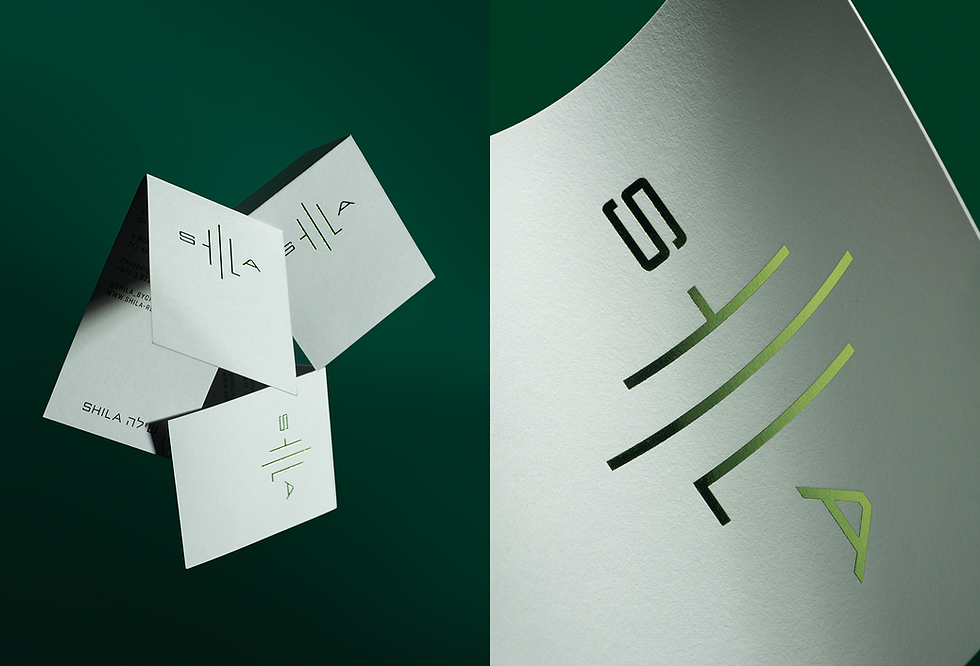- Editorial Team
- Sep 1, 2021
- 3 min read
Updated: Feb 26, 2023
Hear from the Wix graphic designer who believes that above aesthetics, design has to be right and reasoned.
Tell us about your work: what is your current position?
I’m a graphic designer in Design Dev., working on a variety of projects—websites, branding, and print.
What was your graduation project and how did it affect your career?
My graduation project was an urban space graphics manual, suggesting a system of rules for construction of a graphic-identity, distinguishing each city from another. This project helped me focus and understand what I was most interested in doing in my first job after graduation.
What skills/assets did you learn in college that you felt ended up rewarding you the most in finding your first position?
Versatility is important. Don’t stick to one style or a specific trend. Treat design as a multidisciplinary tool. Know how to accept criticism, and learn from it.

When you got into the “real world” what did you look back on in your education and found lacking?
Boundaries (with a real client). When you’re in school, the university is the client, and it encourages you to break down barriers. There is no such thing as beautiful or not beautiful, love or don't—it should be right, reasoned. Of course aesthetics are important, but there is a place to discuss it all. A customer in the real world isn’t like that.
The portfolio interview is a daunting moment—any general tips around etiquette for before, during, and after (secret things that people wished were done but maybe usually go unsaid)?
Be yourself, learn a little about the place before, listen to the interviewer, and come up with questions that interest you about the job. The works you choose for your portfolio are important, but you should also know how to present them, and talk about your work processes. Oh, and smile (helps to reduce the tension).
And what’s the most important thing to have/show in a portfolio?
Projects that you are proud of, that reflect the designer you are , and a diverse array.
How do you usually start working on a project?
Straightaway, I open a new page in Illustrator (the best solution for white page paralysis), and at the same time a new page in my notebook, and start scribbling ideas. I try to understand what the brief is, throwing onto the page anything that comes to my mind. Only after I know what I want to do, do I start doing visual research and finding inspiration.

How do you use trends in your work?
Design should be up-to-date and still current over time, so if I use such or other trends, I'm always looking for the best way to make them functional (i.e. use them as a starting point, and develop them from there).
Professional expertise is something that you know you’re just naturally great at. It isn’t necessarily what you love but what you’re good at. How did you find your own professional expertise?
I aimed to experiment with as many things as possible. The beauty in design is that there is so much to do, and everything is interesting and fascinating. Then you can see what you are really good at, what you’re less good at, and according to that decide where you go next.
The first year after school can be a confusing time. What was it like for you?
In my first job I did exactly what I dreamed of doing after school—branding. In time, I realized that it wasn't enough for me and I wanted to learn more, and experience different niches within design. So, I decided to look for ways of combining branding with web and digital design. Although it's a little scary, I realized it's really okay to start in one place, and then realize that it's not it, and move on.

What's the best advice you've received (and from whom)?
It is not only beautiful or not beautiful, it also has to be right (something I understood during my studies, and adopted for myself).
What are you working on now?
The DoubleYou Website—the one place where all Wix employees can explore new learning opportunities to grow and develop. A place to acquire knowledge, subscribe for new opportunities, and find relevant materials and content.
What do you find most useful in your work (research, visuals, softwares, etc.)?
Research.



